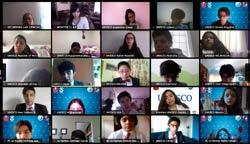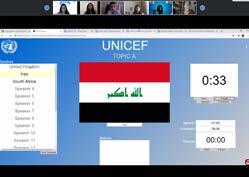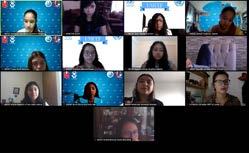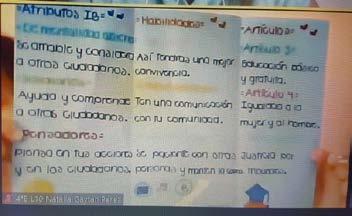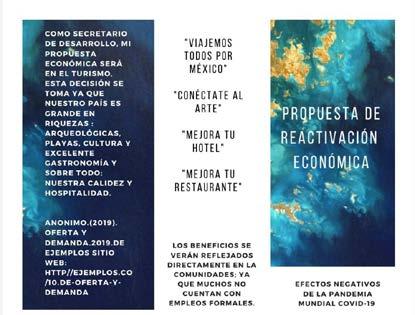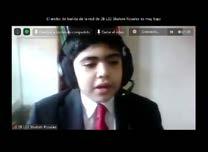
5 minute read
PAZMUN
We should be worried
By Ana Sofía Uribe and Verónica Sofía Benitez
Advertisement
This committee discussed the lack of natural resources in Africa that causes an obstacle to the development of the region. At the time we were in that committee, the delegates were making the resolution document which reflects the solutions of all the delegations towards the problem.
We managed to obtain some of the solutions from the resolution paper. The Russian Federation proposed to make companies with large budgets from the developed countries including United Kingdom, China, United States and Russia, to make use of Africa’s territory and to increase their production within, this action would allow enterprises to have different purposes based on the interests of each developed country. These types of proposals were established in the policy sheet; in this article we only show one since the document contains more than sixteen of them.
To conclude, we think that all the proposals are very good since they are all based and focused on the African community, and it also implies that power countries like Russia will help.
T H E S I D N E Y M O R N I N G H E R A L D
A United Nation Model has always allowed children to discover and express their understanding of the world around them as it evolves.

However, as we are living in a rapidly changing world due to Covid-19 and the governments around the globe trying to get a grip on this pandemic by closing schools and moving teaching online, I have been inspired by the leadership and enthusiasm shown by the Secretariat and Dais members, who have worked tirelessly to change their planned PazMun. By thinking outside of the box and being risk-takers they rose to the challenges set by Covid-19 and created PazMUN from home 2020.

They brought the Model into the home so the students (delegates) could still voice their opinions and solutions to global problems. The delegates, Dias and secretariat were in the digital spotlight as they turned on their cameras and microphones and debated the committee topics. They each dug deep to overcome any hurdle in their way to turn weaknesses into strengths and strengths into inspiration.
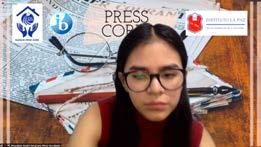
They might have all been isolated from each other and the world might have been a little confused at that moment; but watching, listening to and seeing how our students rose above Covid-19 and throughout this journey, the way in which they understood that everything is possible when you communicate as one. Congratulations to all and remember that change begins with you. Mr. Neil Crawford

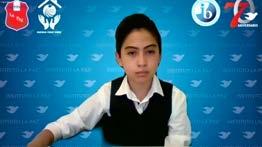
NATIONAL BROADCASTING CORPORATION
UN Human Rights Corporation (UNHRC) The Right to a Digital Privacy
Article by María García and Denisse Aguillón
Nowadays, it is very easy for someone to know all about you and it doesn’t have to be this way. In today’s session of UNHRC, the delegates discussed the digital privacy right that everyone has.
First of all, what is digital privacy? Digital privacy is when you can use the internet and connected devices without compromising your information. Different people have different comfort levels when it comes to digital privacy.
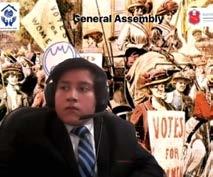
We are going to include the most important proposals. Firstly, we have Italy, who gave an extraordinary proposal: to give talks in order to provide guidance and prevention tools to adult society and young people who are unaware of what can happen within social networks.
Poland complemented Italy’s idea stating that adults and young people with very important bank or personal data, should be educated about phishing and how it looks like.

Here are some of the resolutions: The Trade Commission regulates unfair or deceptive commercial practices. Electronic communications privacy protects certain wire, oral, and electronic exchanges. Children’s online privacy protection requires some websites and online service providers to obtain verifiable parental consent.
Financial services modernization regulates the collection, use and disclosure of personal information.


WHAT WILL HAPPEN TO THE SECOND ITALO - ETHIOPIAN
TH E S I D N EY M O R N I N G H E R A L D
This committee, HSC, was arguing about the second Italo-Ethiopian: a war of aggression which was fought between Italy and Ethiopia from October 1935 to February 1937. It has been seen as an example of the expansionist policy that characterized the Axis powers and the ineffectiveness of the League of Nations before the outbreak of World War II. There were some arguments that we could catch up from the countries. The country with the most presence in this debate was Poland and China, but it should be emphasized that most of the countries provided good solutions to the problem like Austria and Costa Rica.
On one hand, Poland’s declaration was to support or improve education in order to make its closest country (Italy) aware of the conflict, its causes and consequences, but China asked a question that sparked our interest, what would happen with the proposal if the Italian government refuses to accept that type of educational program; to which Poland responded acknowledging that it was a good discussing point; Nevertheless, the program would only be implemented for Italians who live within the countries of the alliance with Poland.
On the other hand, Austria and Costa Rica pointed out some aspects based on the economy and the well-being of the people within this conflict. Austria first established that it would assist Ethiopia with the necessary and basic health resources, such as medicines, vaccines, food and doctors. Finally, Costa Rica established that by having Cuba’s assitance, they could help Ethiopia with economic resources until the conflict stops.
To sum everything up, this committee was debating about the second Italo-Ethiopian conflict, which generates great issues in Europe. We think that all the proposals that were established were very good if they could be achieved; We hope this problem could be solved in the best way possible.
By Ana Sofía Uribe and Verónica Sofía
